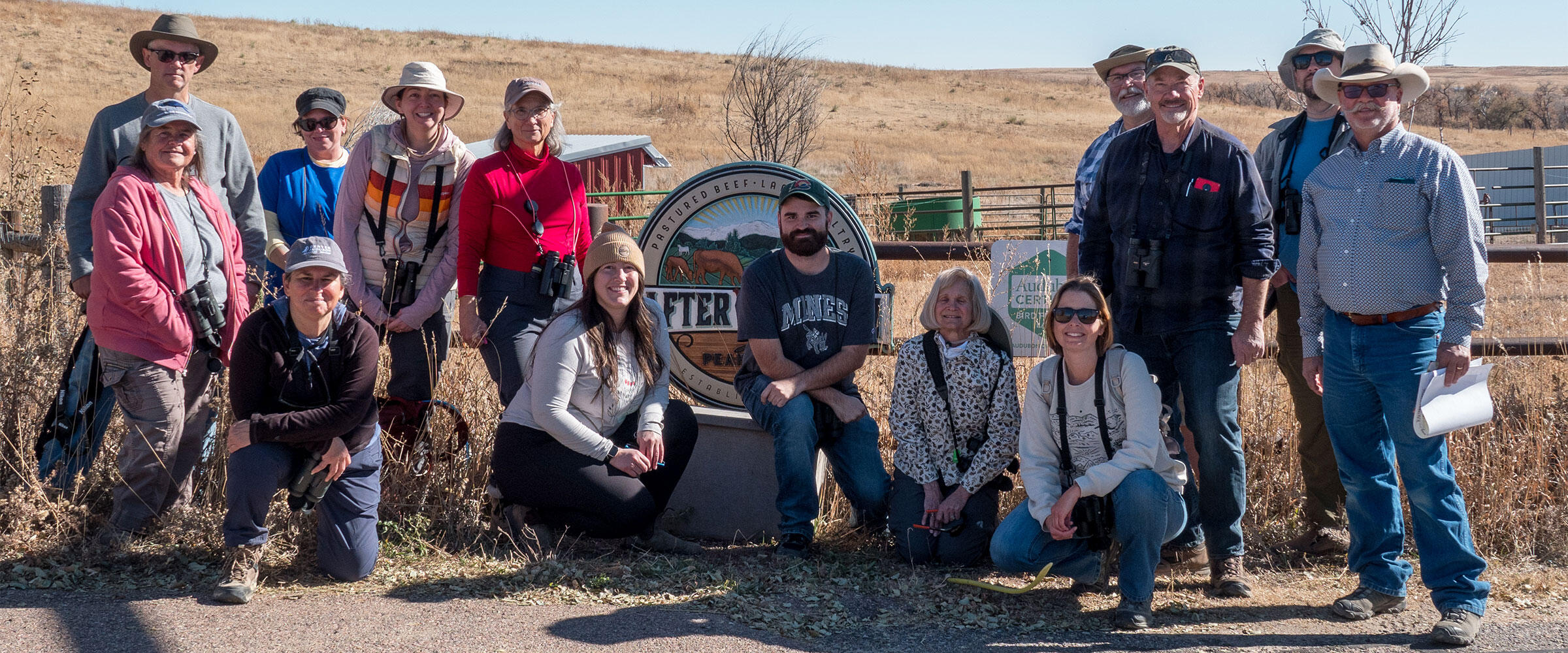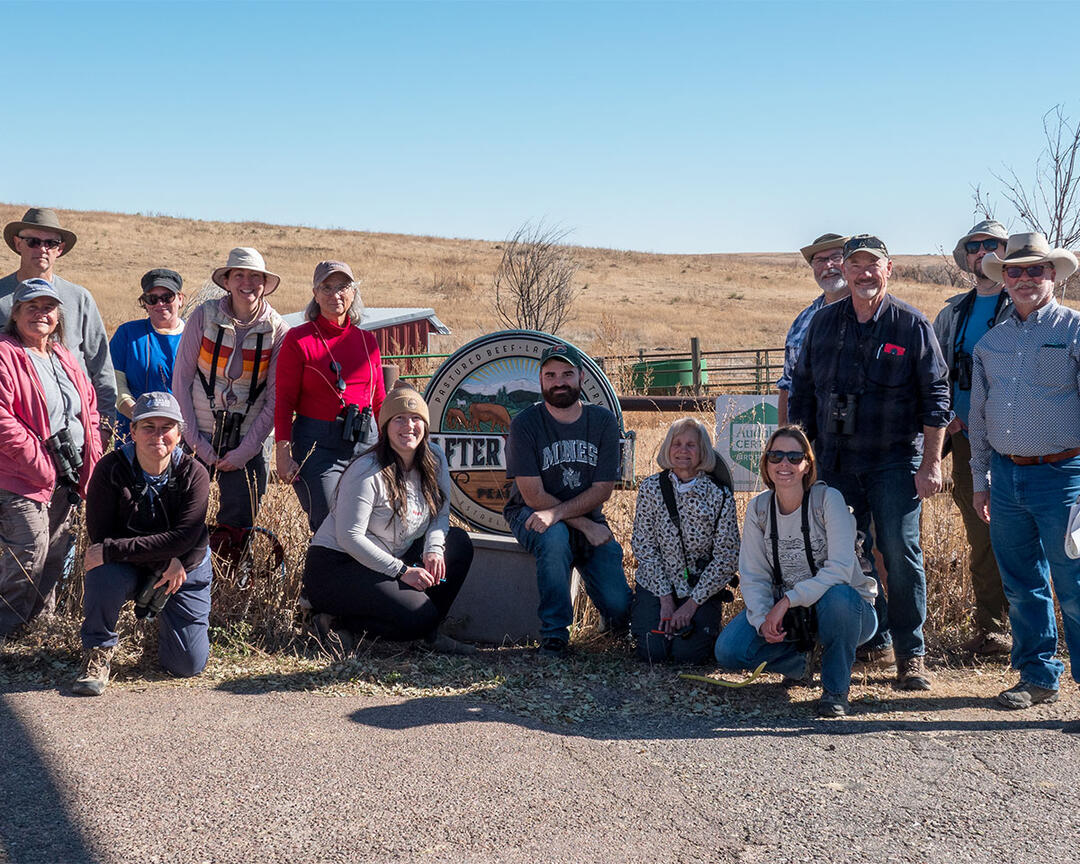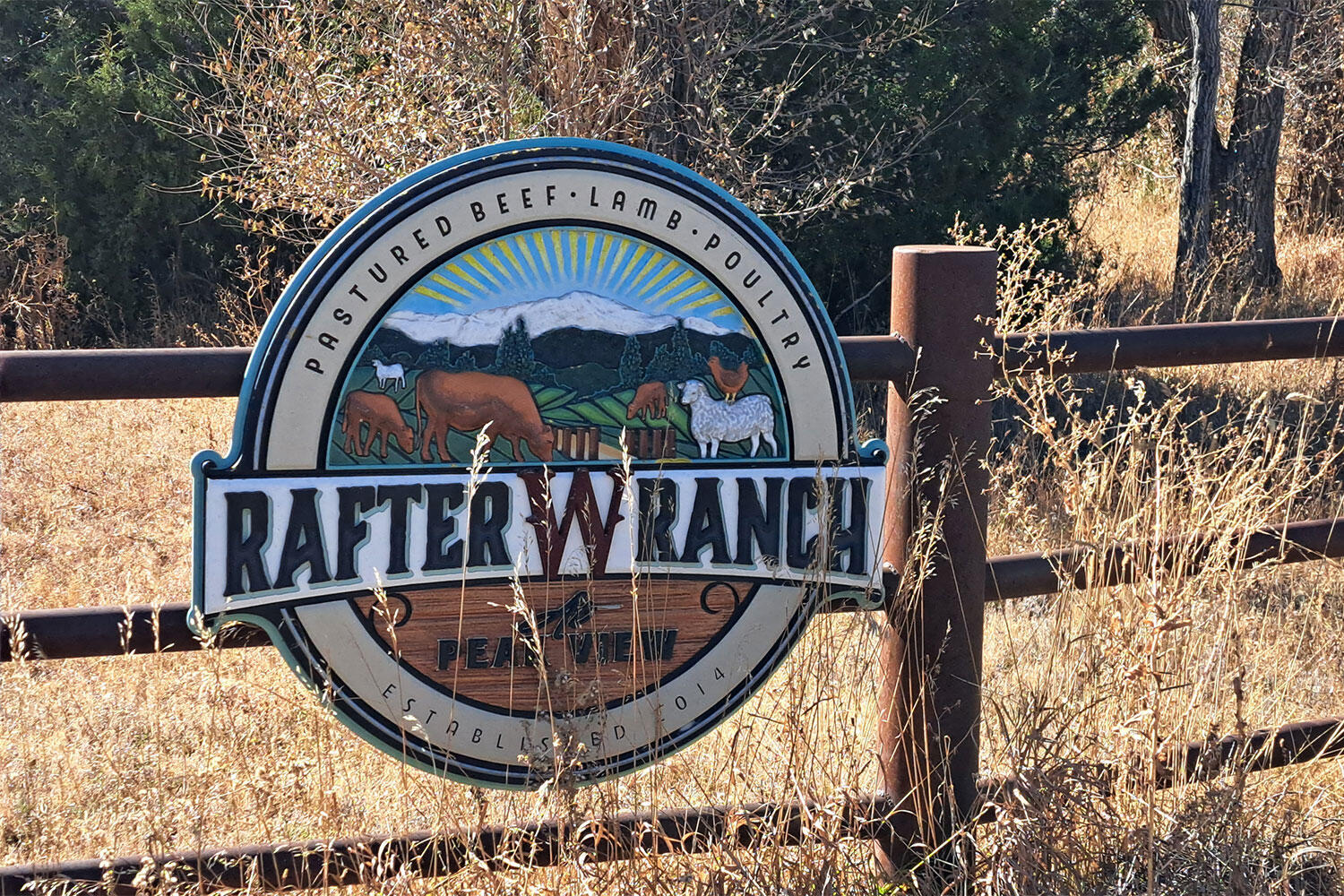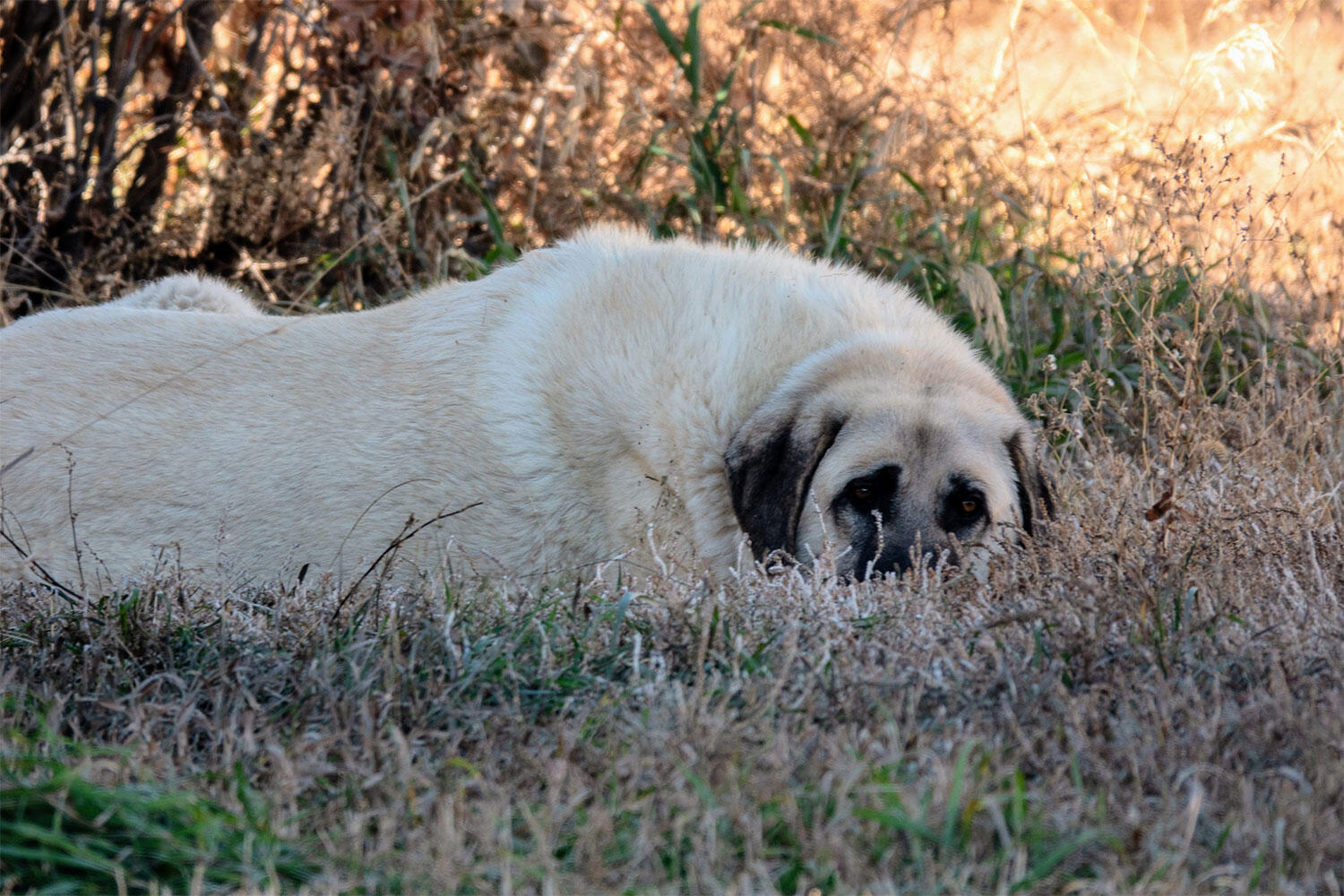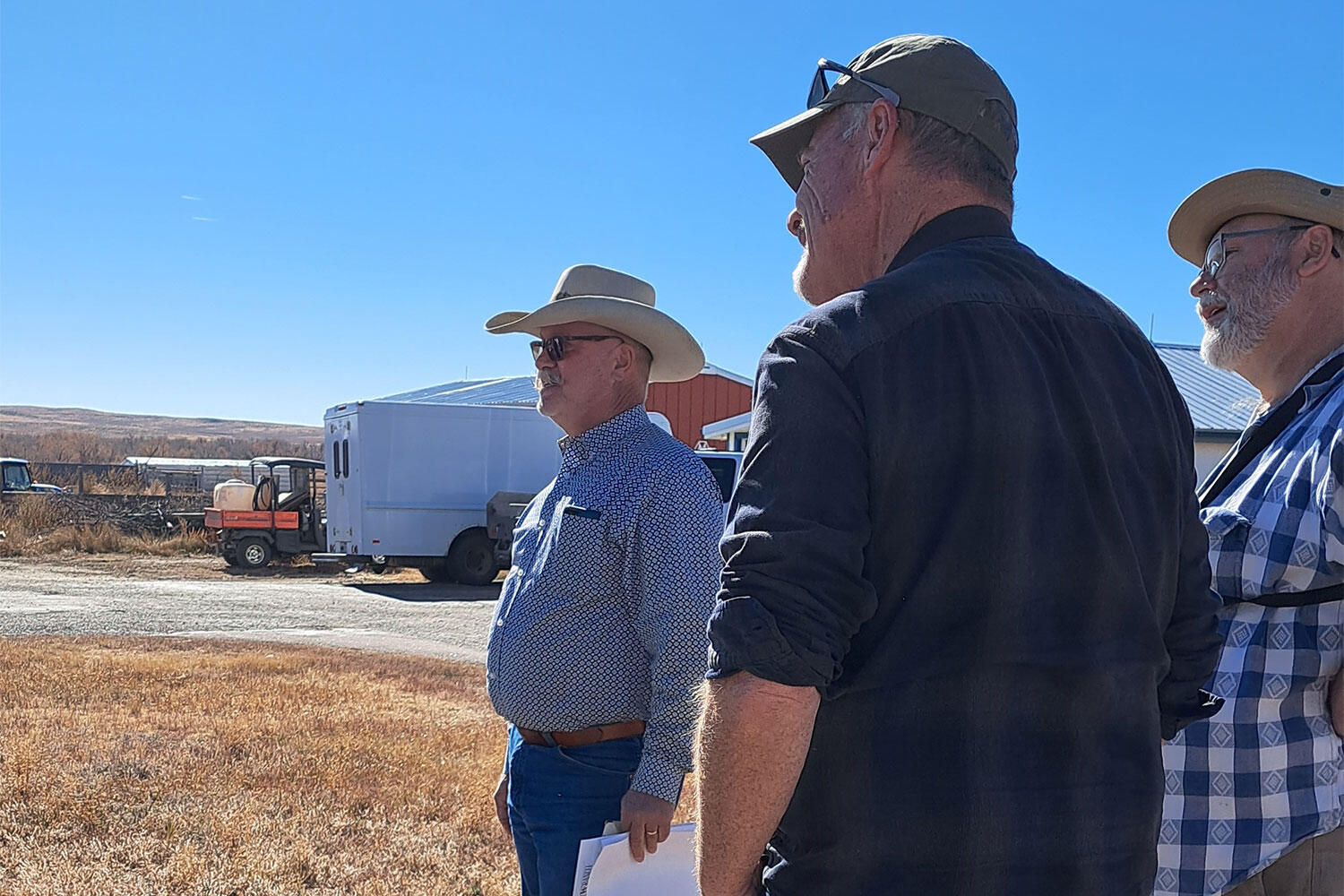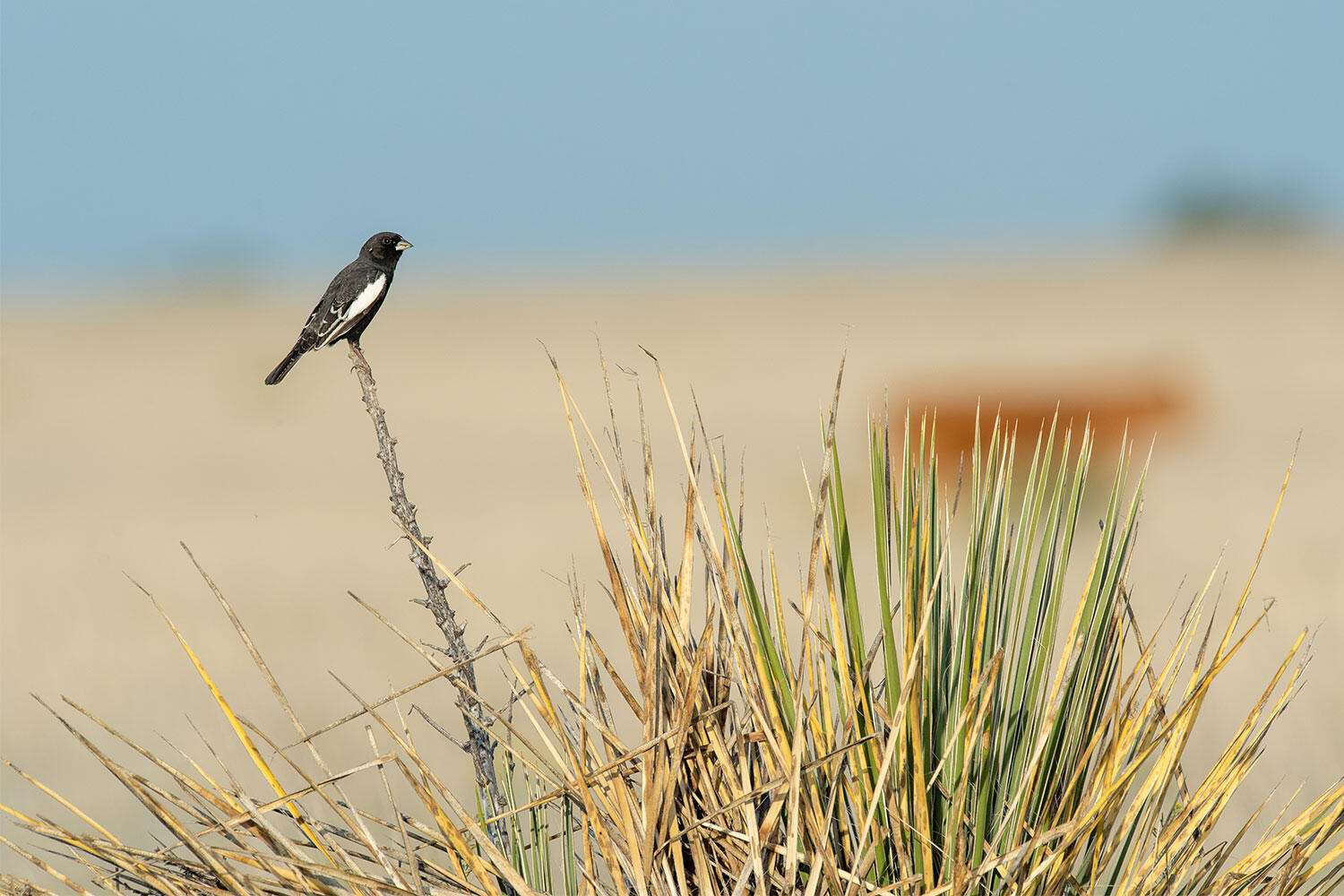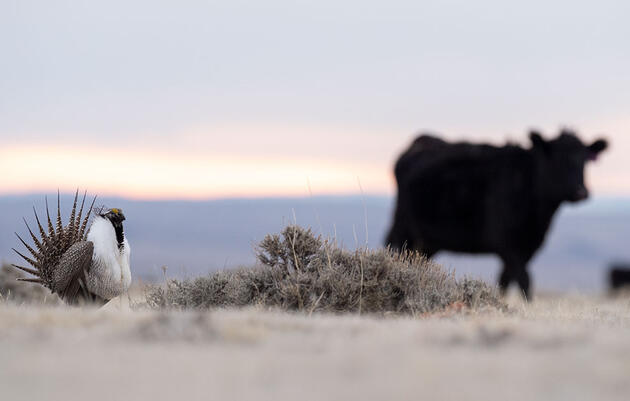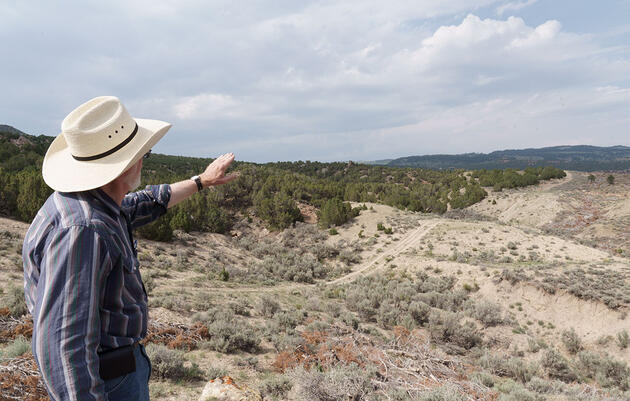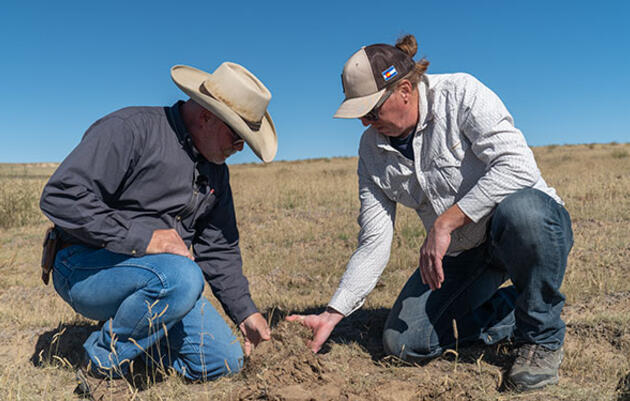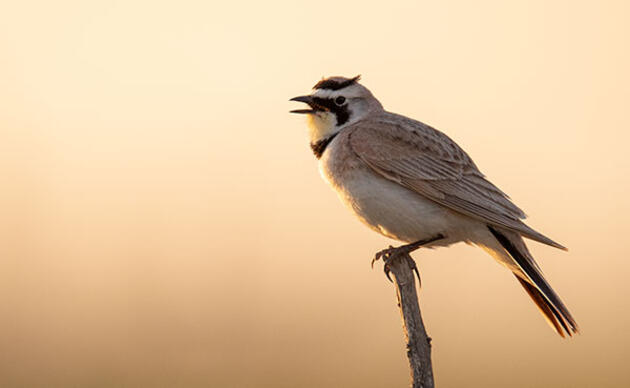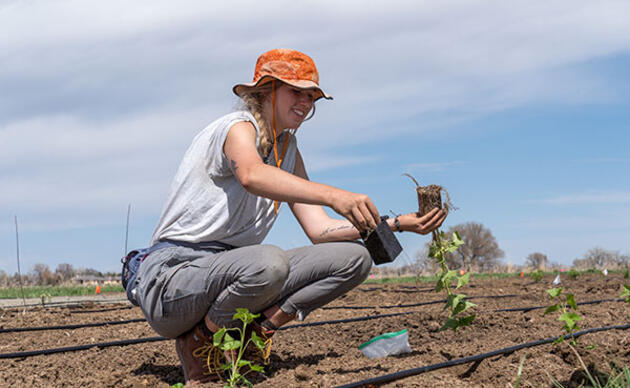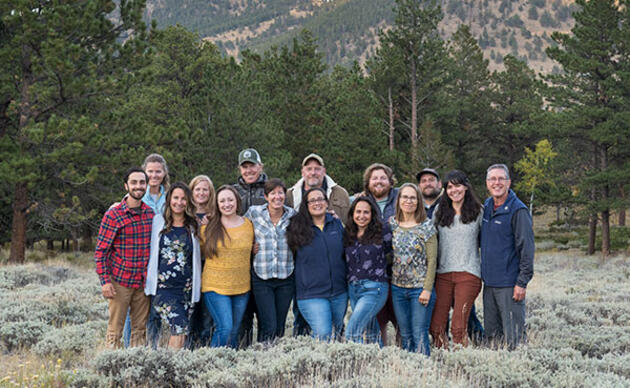On November 11, 2023, the Denver Audubon Master Birder class and a group of inquisitive class mentors visited the Rafter W Ranch in eastern Colorado. Rafter W Ranch is an Audubon-certified bird-friendly ranch seeking to enhance biodiversity on their land with support from Audubon Conservation Ranching (ACR). The ranch produces grass-fed beef, lamb, and chicken kept on healthy land that can better regenerate native grasses for longer sustainable feed.
When we arrived at the ranch we were greeted by our host, Lance Wheeler, a first-generation rancher on this property, and Olaf, the ranch guard dog that greets you and then finds a place to nap till you are ready to leave. The sky was blue and looking to the west was the impressive sight of Pikes Peak, a beacon for settlers crossing the vast prairie.
With the long list of questions that we had sent to Lance in advance to prepare him for our lack of ranching knowledge—let alone conservation ranching knowledge—we began our walk out onto the ranch. Lance was a wealth of information and explained that he and his family came into ranching from books, networking with other ranchers, and resources from ACR.
Lance talked about rotation grazing the land so that there is an opportunity for native grasses to take over some of the invasive species. The ranch uses movable electric fencing over barbwire fencing to contain grazing in a prescribed paddock area until it is time to rotate to another site to prevent overgrazing. Even the chickens will be moved to different locations to maintain their free range.
Water on the ranch is a resource from the creek and from wells. Water is valuable throughout the American West and being able to utilize this resource to its greatest potential is a benefit to ranchers, birds, and all who depend on it. In 2022, Lance and Audubon Rockies staff worked with the National Fish and Wildlife Foundation to utilize a keyline plow on a section of the ranch to increase water flow and reduce the soil compact. This would reduce runoff from the rain and allow the rainwater to be retained in the soil. This plow technique was first developed in Australia and has been successful for ranchers in that arid part of the world.
On average, the Rafter W Ranch receives 16 inches of precipitation a year. They are a participant in the STAR (Saving Tomorrow’s Agricultural Resources) program sponsored by the Colorado Department of Agriculture and endorsed by ACR. There have been soil moisture monitors on ranches to look at water retention in the soil. Utilizing grazing practices to produce healthy soil in turn will yield an increase in the soil's ability to retain moisture throughout the year.
Soil restoration is where ACR staff and Lance have worked together. Lance told the class that there are five keys to healthy soil:
- Soil cover, to prevent erosion
- Minimal disturbance and tillage
- Plant diversity
- Living roots from plants that have roots yearlong
- Integration of livestock to add organic nutrients to the soil
Lance added one more to this list: Know your content.
The class visit to the Rafter W Ranch was filled with more knowledge and inspiration beyond this article. Ranchers like Lance Wheeler are vital to supporting the health of our prairie and stewards in conservation. They share their land and livelihood with wildlife and plant communities. This field trip allowed us a chance to see the magic that Lance has incorporated and the results that have come in just the first full growing season.
The class truly enjoyed this visit and talked about coming again at another time of the year. We would like to thank Lance Wheeler and his family at the Rafter W Ranch for allowing us to visit. Our thanks also to Dusty Downey, conservation ranching manager from Audubon Rockies, for introducing us to Lance Wheeler.
This article was written by Diane Hutton, Denver Audubon Volunteer Master Birder Schedule Chair and Program Coordinator. Contribution by Julia Gwinn Denver Audubon Volunteer and Current Audubon Master Birder student.

